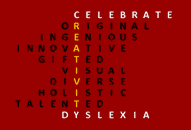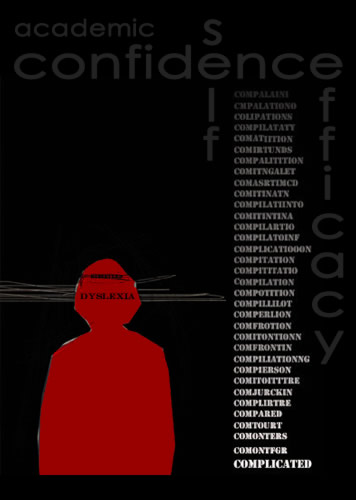
project outline | design | post-project
discourse study-blog | resources | lit review maps | profiles
enquiry research QNR | dysdefs QNR | dysdims QNR
thesis overview | literature | research design | data & analysis | discussion | conclusions
discourse study-blog | resources | lit review maps | profiles
enquiry research QNR | dysdefs QNR | dysdims QNR
thesis overview | literature | research design | data & analysis | discussion | conclusions
 project introduction
project introduction

Dyslexia is identified in many students as a learning difference but the syndrome remains widely debated (eg: Elliott & Grigorenko, 2014). Nonetheless, the impacts of dyslexia and dyslexia-like profiles on learning are readily apparent in literacy-based education systems both in early-age learners who experience challenges in the acquisition of reading skills, to university students who attribute many of their struggles to adapt to the independent and self-managed learning processes that are core competencies in higher education learning to their dyslexia. To gain a greater understanding of the issues is at least a first step towards meeting the learning needs of learning differences (Mortimore & Crozier, 2006), although encouraging the design and development of more accessible curricula - particularly in Higher Education - seems preferable to fixing the learner. This might then mean that learners with dyslexia would feel more included and less 'different' (eg: Dykes, 2008, Thompson et al, 2015). When learning differences cease to impact on access to, and engagement with learning - in whatever ways this is ameliorated - it is reasonable to suppose that the persistent disability model of dyslexia, tacitly implied by 'diagnosis', 'reasonable adjustment' and 'support', will have reduced meaning. Instead, the positive strengths and qualities that form part of the dyslexia spectrum of differences can be celebrated and integrated into the development of the learner in ways that will encourage a greater sense of academic agency to emerge, possibly reflected by stronger academic confidence which may contribute positively towards better and more successful academic outcomes at university (Nicholson et al, 2013).
This is a research project to explore dyslexia and academic confidence.
The project is interested in learning more about how students with dyslexia integrate their learning difference into their study-self-identity. It will explore their judgements of its impact on their study processes in relation to their sense of academic purpose, in particular the confidence expressed in meeting their academic challenges at university. A fresh, innovative profiler will be developed which aims to offer an alternative understanding of learning difference which does not focus on deficit-discrepancy models and disability. The research takes the standpoint that it may be students' awareness of their dyslexia and what the dyslexic label means to them that is the most significant factor that affects their academic confidence which is more significant than the challenges that the dyslexia itself may present to their learning engagement. This is thought to be an innovative approach to dyslexia research and aims to challenge the persistent medical, deficit model of dyslexia and the labelling of the syndrome as a disability in Higher Education learning contexts. The research is also expected to contribute to the discourse on the non- or late-reporting of dyslexia in university students (eg: Henderson, 2015), and also add to the limited range of research relating to the academic confidence of university students who are from minority groups, especially those deemed to have a learning disability.